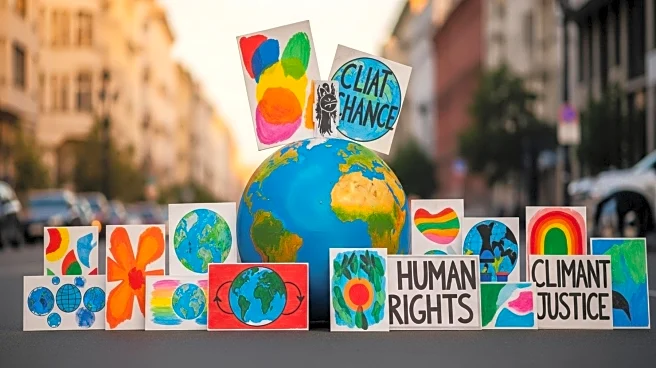What's Happening?
Gen Z, the demographic cohort following Millennials, is increasingly taking to the streets in protests around the world. These youth-led movements are driven by a variety of concerns specific to each country, yet they share a common theme of dissatisfaction with the current state of affairs. According to NBC News' Valerie Castro, these protests are a reflection of the younger generation's desire for change and their willingness to challenge the status quo. The protests are not limited to a single issue but encompass a range of topics, including climate change, social justice, and political reform.
Why It's Important?
The rise of Gen Z protests is significant as it represents a shift in how younger generations are engaging with political and social issues. This demographic is known for its digital savviness and ability to mobilize quickly through social media platforms, making their movements more visible and impactful. The protests could lead to substantial changes in public policy as governments may be compelled to address the concerns raised by these young activists. Additionally, the involvement of Gen Z in activism could influence future electoral outcomes, as this generation becomes a more significant voting bloc.
What's Next?
As Gen Z continues to organize and protest, it is likely that their influence will grow, potentially leading to more significant policy changes. Governments and political leaders may need to engage more directly with this demographic to address their concerns and prevent further unrest. The ongoing protests could also inspire other generations to become more active in political and social issues, leading to a broader movement for change.
Beyond the Headlines
The Gen Z protests also highlight the power of digital communication in modern activism. The ability to quickly disseminate information and organize events through social media has transformed how protests are conducted and perceived. This digital aspect of activism could lead to new forms of engagement and advocacy, challenging traditional methods of political participation.









